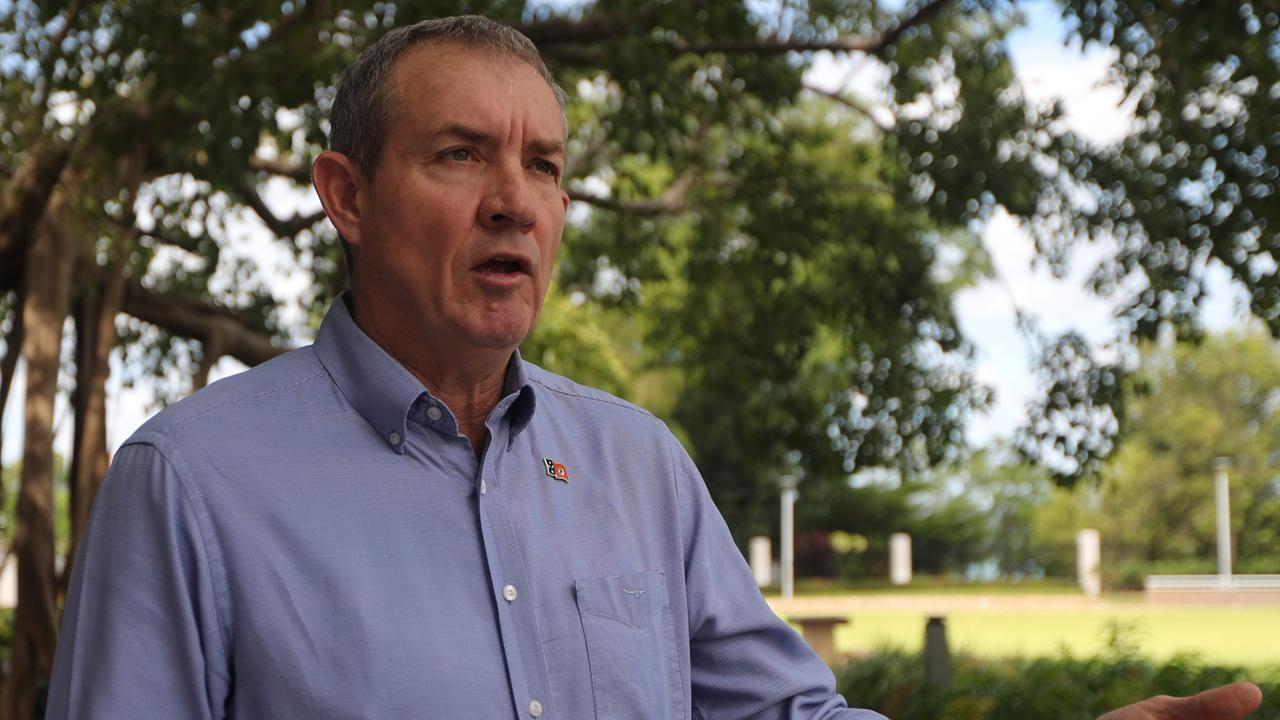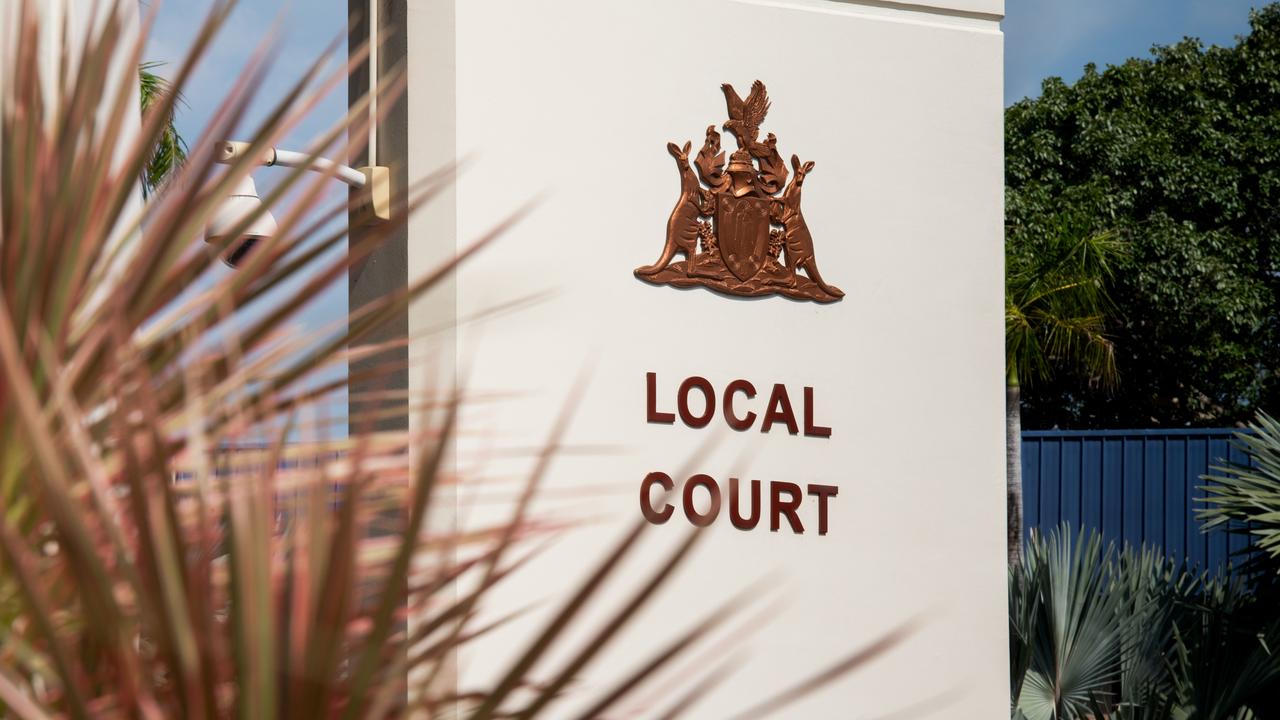Northern Territory government raises age of criminal responsibility from 10 to 12
The age of criminal responsibility has risen from 10 to 12 in the Northern Territory, making it the first jurisdiction in Australia to do so. See how the historic vote went down.

News
Don't miss out on the headlines from News. Followed categories will be added to My News.
The Northern Territory government has passed legislation to raise the age of criminal responsibility from 10 to 12.
The changes will come into effect in the second half of next year.
Rather than being criminally charged and detained, offending children under the age of 12 will be referred to intervention and family support programs.
Programs such as Back on Track, youth diversion camps and restorative conferencing are already in place.
Attorney-General Chansey Paech has also committed to reviewing the legislation in two years’ time, which could mean the age would be raised further to 14.

Chief Minister Natasha Fyles told parliament on Tuesday the Territory’s existing laws set up the most vulnerable children to fail.
“We know these children come from a background that is not a fair chance of growing up,” Ms Fyles said.
“We also must acknowledge the disproportionate numbers of young people in detention are Aboriginal Territorians.
“We must invest, we must try to help these young people overcome the challenges that they will have faced.
“The evidence is unavoidable.
“The earlier a child enters the criminal justice system, the more likely they are to reoffend.
“When you sentence a 10 or 11-year-old child to prison, you are not sentencing them to rehabilitation, to a life of better behaviour.

“You are sentencing them to increased behavioural problems … the evidence shows us, a life of criminal activity.
“The bill is about stopping that cycle before it starts but it also about supporting those families.”
The landmark reform honours some recommendations of the Royal Commission into the Protection and Detention of Children in the Northern Territory, which was handed down five years ago.
However it falls short of the Commission’s recommendation that only children younger than 14 who have been convicted of a serious and violent crime, and who pose a serious risk to the community, be detained.

The United Nations Committee on the Rights of the Child also recommends the age of criminal responsibility be 14 at a minimum.
Australia has one of the lowest ages of criminal responsibility across the developed world.
Attorney-General Chansey Paech said the legislation supported the rights of all Territorians as it would break the cycle of reoffending.
“We’re taking a smarter approach to youth justice so our communities can be safer,” Mr Paech said.
“Our focus is on delivering proven solutions that will benefit of our children, their families and the Territory as a whole.”

The Country Liberal Party was strongly against the legislation.
Opposition Leader Lia Finocchiaro said the reform did not represent the views of most Territorians.
“Community safety must be the number one concern of any government,” Ms Finocchiaro said.
“Territorians are making serious decisions about leaving the Territory because of crime.
“Make no mistake – today is a very dark day for the Northern Territory
“It is a day that represents the rights of the offender above the rights of our community to be safe.”
Opposition youth justice spokesman Josh Burgoyne said the move was premature and unfunded.
“Offending by youth has never been so widespread or violent,” Mr Burgoyne said.
“We cannot ignore the fact that some children are so entrenched in violent criminal behaviour, that first (the) public needs to be protected from them.
“Second, they require intensive, ongoing rehabilitation.
“The Labor government has proven that they cannot rehabilitate children effectively, so why should we now trust them?
“(Labor) cannot provide a timeline for the rollout of services to fill the gap that will be left by this legislation.
“Why are we simply pouring more money into things that do not work?”
Mulka MLA, Yingiya (Mark) Guyula, said the age should be raised to 14, but voted with Labor on the Bill.
Araluen MLA Robyn Lambley voted against the reform alongside the opposition.
The new laws passed in a vote about 8pm Tuesday, after about seven hours of debate.
CLP to fight against landmark youth justice reform
The Country Liberal Party will fiercely oppose legislation that aims to raise the age of criminal responsibility in the Northern Territory from 10 to 12.
Opposition youth justice spokesman Josh Burgoyne said the proposed reform, which is likely to pass by the majority Labor government in parliament this week, could not come at a worse moment.
“At a time when crime is out of control in the Northern Territory, the Labor government want to raise a criminal age of responsibility,” Mr Burgoyne said.
“This is simply not good enough and not in line with community expectation.
“We will be opposing that legislation and calling for more programs to better deal with young at risk youth in our community, not less consequences.”
Mr Burgoyne said those programs needed to set young offenders on a path to become “valued” members of society.

“We need more skill-based programs throughout the Northern Territory to ensure that young people can be diverted away from a life of crime and learn a real skill,” Mr Burgoyne said.
“For those young people to be sentenced to those skill work programs, they need to go before a court.
“It simply cannot be incumbent on that young person to go along should they wish.
“We need that to be a legal responsibility on that young person to attend these programs so they can reform their behaviour and become valued members of our society.
“We want to see these young people leave behind the life of crime and actually contribute productively to our society.”
The CLP has promised to repeal the legislation if they form government in 2024.
Mr Burgoyne did not give a timeline on when that would happen.
He also said the CLP was aiming, once again, to raise its fuel price disclosure Bill in parliament on Wednesday.
How NT parliament’s most significant sittings of the year will end
The NT is set to become the first Australian jurisdiction to raise the age of criminal responsibility, as our politicians head into another landmark week of legislation changes.
The new laws are likely to pass by the majority Labor government in parliamentary sittings this week.
It would mean children under the age of 12 would not be charged with a crime in the NT, but instead offered intensive therapeutic programs and psychological assessments.
Currently, kids as young as 10-years-old are incarcerated across Australia.
The Royal Commission into the Protection and Detention of Children in the Northern Territory, completed five years ago, recommended the age of criminal responsibility be raised to 12.
It also recommended that only youth under 14, who have been convicted of a serious and violent crime, serve time in detention.

Leader of Government Business Chansey Paech said the “progressive” reforms would offer a better future for Territorians.
“We need to be smart about the way we deliver justice, and serious about promoting equality of opportunity,” Mr Paech said.
“It’s how the NT will become a better place.”
CLP leader Lia Finocchiaro said the opposition was “extremely concerned” about raising the age and would repeal it if elected in 2024.
“It will just mean less consequences, less accountability for offenders,” Ms Finocchiaro told Mix 104.9.
“It will not mean less crime.”
A number of significant reforms already passed in November’s first week of sittings.
They include a repeal of mandatory sentencing for offences such as assault, drug offences and breaches of domestic violence orders.
Deputy Chief Minister Nicole Manison said judges’ options for sentencing offenders will increase, as well as the enforcement behaviour change programs.
“The Northern Territory has horrendous domestic and family violence statistics, and we need this to change,” Ms Manison said.
“The bill provides for new, smarter solutions to break the cycle of reoffending, prioritise victims’ safety, support victims of crime and hold offenders accountable.”
50 amendments have also been made to the Anti-Discrimination Act 1992, including contentious laws around offending people and making representative complaints of discrimination.
Furthermore, religious schools can no longer choose employees and students based on their faith under the passed reforms.

It marks a first in any Australian state or territory’s discrimination laws.
Legal definitions on disability, gender, relationship status, employment status and sexuality have also been renewed.
The Medicines, Poisons and Therapeutic Goods Bill was amended with bipartisan support.
The new laws allow registered practitioners to prescribe and dispense some medicines such as antibiotics, the pill and vaccinations.
It aims to ensure remote Territory communities have access to life saving medications, even if there is no doctor available.
Parliament sits from Tuesday to Thursday this week, for the last time in 2022.


